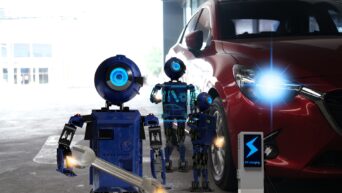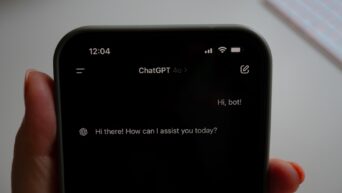At the Viva Technology show held at Parc des Expositions Porte de Versailles, significant discourse emerged around the timeline for the development of artificial intelligence (AI) that surpasses human intelligence. Prominent figures in the tech industry, including Elon Musk and Robin Li, presented contrasting views on this critical topic.
Elon Musk, CEO of Tesla, has predicted that artificial general intelligence (AGI)—AI as smart or smarter than humans—will be achieved by 2026. Sam Altman, CEO of OpenAI, echoed a similar sentiment earlier this year, suggesting that AGI could be developed in the “reasonably close-ish future.”
Conversely, Robin Li, co-founder, CEO, and chairman of Baidu, one of China’s leading AI firms, expressed a more conservative estimate. During his talk at the VivaTech conference, Li asserted that AGI is still more than a decade away.
“AGI is still quite a few years away,” Li stated. “Today, a lot of people talk about AGI, [and] they’re saying it’s probably two years away, it’s probably five years away. I think it is more than 10 years away. By definition, AGI is that a computer or AI can be as smart as a human, or sometimes smarter. But we would want an AI to be as smart as a human. And today’s most powerful models are far from that. And how do you achieve that level of intelligence? We don’t know.”
Li also emphasized the need for a faster pace of AI development. Despite the significant advancements in AI technology over the past few years, he expressed concern that the progress is not fast enough. “Everyone’s shocked at how fast the technology evolved over the past couple of years. But to me, it’s still not fast enough. It’s too slow,” Li remarked.
Baidu has been actively contributing to AI advancements, notably with the launch of its ChatGPT-style chatbot Ernie, based on its large language model. Chinese tech giants including Baidu, Alibaba, and Tencent are heavily investing in AI models, similar to their U.S. counterparts. However, Li noted a fundamental difference in focus: while the U.S. and Europe are concentrating on developing the most powerful foundation models, China is emphasizing practical applications of the technology.
Despite these investments, Li pointed out the absence of a “killer app” for AI. “Today, in the mobile age, you have apps like Instagram, YouTube, TikTok with daily active users in the order of a few hundred million to a billion users. For AI native apps, we don’t see that yet. We don’t see that in the U.S., we don’t see that in China, we don’t see that in Europe,” he said. “What’s the right form for AI native apps? What kind of AI native apps will be able to reach the 100 million user mark?”

































